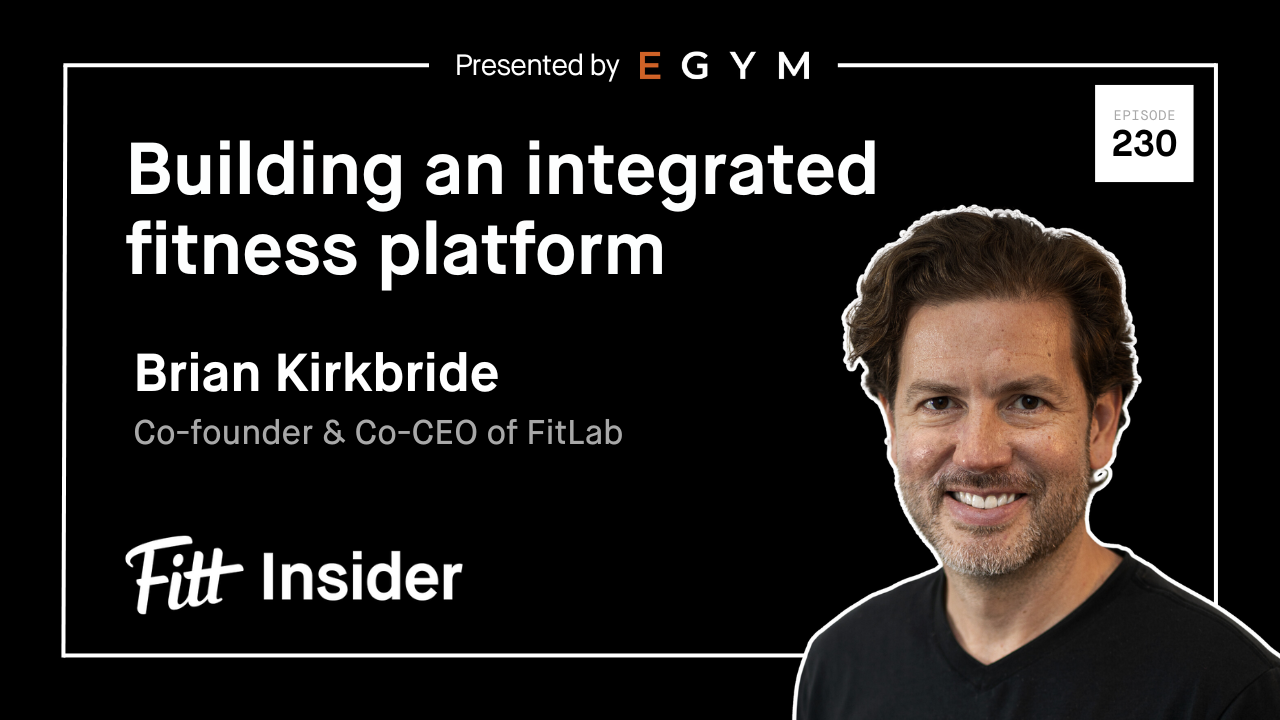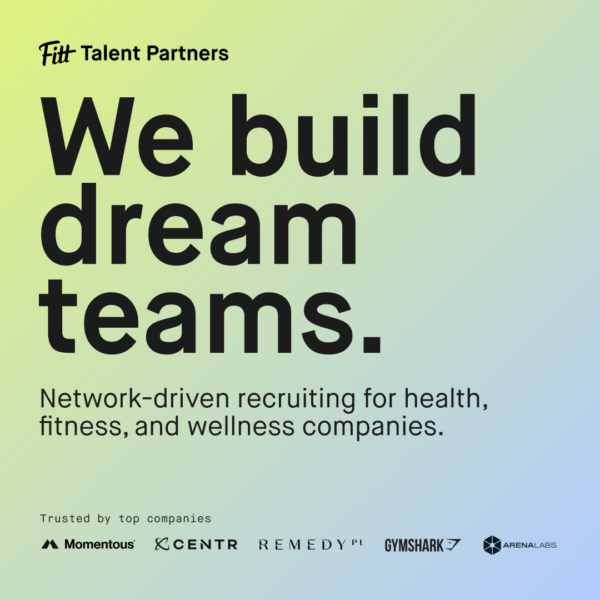
Improving revenue and retention for wellness businesses.
GLP-1s are just the beginning.
Crash Course
Global obesity rates just topped 1B, and half of Americans could be obese by 2030.
Triggering a frenzy, “miracle” semaglutide weight loss drug sales surged 89% last year, and prescriptions have more than quadrupled since 2020.
Going direct to consumer, telehealth companies are slinging GLP-1s, and drugmaker Eli Lilly tapped Amazon for home delivery.
Creating societal shockwaves, pharma’s breakthrough is no panacea.
Choosing Sides
Classifying and treating obesity has culture divided.
Reminding people it’s a disease, Oprah is promoting use, WeightWatchers is fighting for mass coverage, and digital health companies are spreading ads to squash shame.
Arguing against shortcuts, others say weight gain is preventable, drugs aren’t economical, and lifestyle medicine is key to lasting change.
Second Order
As the debate rages on, ripple effects will cross industries.
Fitness. With 42% of GLP-1 users upping activity levels, the industry stands to benefit. An on-ramp to exercise, gyms could welcome entirely new clientele.
Leaning in, Life Time and Xponential prescribe GLP-1s, Equinox offers tailored training, and FitOn and obé developed programs to combat muscle loss.
Gearing up, Stifel analysts predict consumers on GLP-1s will 2x athletic apparel spending; spikes in equipment sales, sports, and recreation could follow.
Nutrition. As Ozempic cuts cravings, Big Food is reevaluating empty-calorie snacks.
Change in motion, Conagra is pushing portion-controlled frozen meals, General Mills is reformulating recipes with added protein, and Abbott launched GLP-1 complement shakes.
Shifting the beverage landscape, 60% of drug takers cut back on sugary soda and alcohol — a boost for functional and NA brands.
Healthcare. Prescribing all obese Americans could cost the US $1T annually. Dodging the expense, North Carolina defunded GLP-1s, while other states set restrictions.
As studies prove the drugs treat comorbidities, Medicare is starting to pay. A budgetary threat, treating just 10% of obese seniors could cost $26.8B.
While most employers don’t offer coverage, 44% of workers would switch jobs to gain access. Mediating, Solera Health and Virta Health prescribe food-as-medicine before resorting to drugs.
Mental health. Free from intrusive food thoughts, 86% say GLP-1s changed them for the better.
Rewiring natural impulses, scientists say Ozempic works by affecting the brain’s dopamine pathways — implying they could treat addiction, depression, ADHD, and more.
A Pandora’s box, long-term “anti-desire” drugs could have unintended consequences.
Plot Holes
Touting meds to the masses, influencers and marketers fail to mention they cause side effects, don’t work for many, and two-thirds quit use within a year — often regaining lost muscle as fat.
Pursuing adherence, drugmakers are developing pills, once-a-year “vaccines,” and muscle-preserving combo shots. A conflict of interest and red flag, if our world remains engineered for obesity, pharma profits in perpetuity.
Liable. Proof of a pervasive problem, childhood obesity has quadrupled since 1990.
Prescribing kids while ignoring factors like declining youth sports, lack of free play, nutritionally void school lunches, and social media’s effects on brain chemistry is a recipe for dependence, developmental problems, and continued systemic failure.
Punchline: A medical breakthrough with massive implications, GLP-1s aren’t a magic pill. Making sure consumers know that—and inviting them into fitness and wellness without stigma—will be the defining role of our industries.
🎙 On the Podcast

FitLab co-founder & co-CEO Brian Kirkbride discusses the company’s growing platform.
Scaling up, FitLab is integrating studios, equipment, and experiences. Its expanding portfolio includes Assault Fitness, XPT, Ragnar, McGregor FAST, and more.
We also cover: developing Nike’s boutique studios, acquiring vs. building companies, and uniting memberships across brands.
Listen to today’s episode here.
🚪 Longevity startup Modern Age shutters
Announcing the closure via email, founder and CEO Melissa Eamer told members the business could not secure the capital necessary to continue.
Forever young. Founded in 2021, Modern Age debuted its NYC-based “aging wellness destination” and telehealth platform the following year.
Seeking to maximize healthspan via preventative diagnostics, bone scans, blood draws, IV therapies, prescriptions, and more, the company attracted $33M in funding.
Pushing growth, it opened a second brick-and-mortar clinic in the Upper East Side last year, but the outlook wasn’t sufficient to sustain operations or attract additional capital.
Timekeepers. Zeroing in on subjective age—the concept that how you feel matters more than years alive—Modern Age was one of many upstarts rethinking chronological aging.
- Elysium Health, TruDiagnostic, GlycanAge, and others are leveraging at-home tests to optimize biological age (how old your cells are).
- Digital and in-person concepts—from Lifeforce and Tally Health to MIORA and Serotonin Centers—package lifespan-enhancing wellness services.
Punchline: The allure of more healthy years has piqued the interest of customers and VCs, but investors are cinching the purse strings amid economic uncertainty. Being default alive, as YC founder Paul Graham explains, is the only way for startups to avoid death.
Presented by Youll
📈 Improving Retention to Grow Revenue
Fitness studio, bathhouse, recovery center, supplement maker, health tech… you name it, Youll helps wellness brands launch a subscription-based app.
Developed by Headspace’s product and engineering squad, Youll’s no-code solution unlocks recurring revenue while boosting retention.
Purpose-built for wellness businesses, Youll is the easiest way to create an educational, content-driven digital experience.
Start now to increase earning potential by fostering deeper engagement and customer loyalty with users everywhere.
See transformative growth in just 30 days — book a demo here.
📉 US happiness levels hit new lows
For the first time, America is not among the top 20 happiest countries, primarily due to discontent among under-30s.
Checked out. Confronting tech addiction, isolation, and social issues, loneliness has become a public health crisis, increasing risk of premature death by >60%.
As layoffs feed literal and metaphorical resignation, cynical Gen Zers and millennials are disengaging. Choosing paychecks over purpose, they’re failing to find fulfillment at work.
Come together. Progressing on the wellness hierarchy of needs, many are willing to pay for social connections outside the office, giving rise to the anti-loneliness business.
- Making connection a habit, the Thoughtful app reminds users to reach out to loved ones.
- Uniting strangers, UK-based Timeleft organizes weekly dinners around the world.
- Giving remote workers a home, Groundfloor is a social club/coworking space.
Meanwhile, Matter Neuroscience raised $26M to “solve happiness” on a molecular level — infusing brain research into an app with personalized mood-boosting plans.
Takeaway: A new kind of preventative medicine, startups are using social connection to avert downstream health struggles. But, from gyms to activewear labels, all brands can benefit from building community.
📰 News & Notes
- Changing careers? Land your dream health and fitness job.
- Hydration platform Nix, Mayo Clinic collaborate on research.
- Aviron launches gamified rowing app, partners with Concept2.
- Soccer star Cristiano Ronaldo readies wellness app ERAKULIS.
- L Catterton ramps up early-stage beauty and wellness investments.
- Startup Q&A: The business of ice baths with Plunge CEO Ryan Duey.
- FIIT unveils hybrid B2B platform targeting fitness, hospitality, and corporate.
- WB Discovery taps WHOOP for real-time biometrics on bike race broadcasts.
- Masimo eyes wellness wearables, will split medtech and consumer divisions.
- EGYM debuts AI-powered “Genius” training plans, Hip Thrust strength machine.
- Hiring? Tap into the Fitt Insider community by enlisting our recruiters for your search.
💰 Money Moves
- India-based smart ring maker Ultrahuman announced a $35M Series B with backing from Blume Ventures, Steadview Capital, Nexus Venture Partners, and more.
- Sustainable plant-based protein bar brand ALOHA raised $68.5M in a new funding round.
- Chiyo, a food-as-medicine startup integrating TCM for maternal health, raised $3M in a seed round led by Bread & Butter Ventures.
- Eight Sleep received an undisclosed investment from tennis player and new brand ambassador Taylor Fritz.
- Wellness real estate developer Delos Living added $3.2M in funding.
- Mental healthcare provider Lightfully Behavioral Health secured a $50M investment from Regal Healthcare Capital Partners.
- Sausalito-based NA beer brand Best Day Brewing secured $10M from undisclosed investors.
- Coconut water company Once Upon A Coconut secured an undisclosed investment from Shark Tank’s Daymond John.
- A consortium including Group KPS, Bastion Capital, and one of the company’s founders acquired supplement brand Goli Nutrition.
- The Flex Company, makers of sustainable period care products, landed undisclosed funding from baseball star Justin Verlander and model Kate Upton.
- GNGR Labs, maker of functional ginger-based beverages, closed an undisclosed seed round.
- Elevance Health subsidiary CarelonRx acquired Kroger’s specialty pharmacy business for patients with chronic illness.
Today’s newsletter was brought to you by Anthony Vennare, Joe Vennare, Ryan Deer, and Jasmina Breen.

